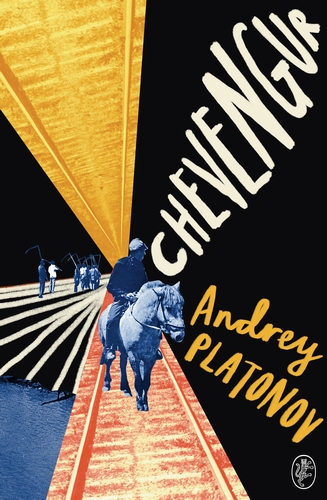The gap between ethics and politics has never seemed to yawn wider. The response of the laughingly called “international community” to Gaza has exposed truths and the need for a politics of Truth.
 Sean Sheehan
Sean Sheehan
Such a need confronted Lenin when the leading socialist party in Germany transformed its politics – as shamelessly as Starmer changed the Labour Party – and supported a call for war in 1914.
Lenin came to see the urgency of initiating a political project that would undermine the liberal-capitalist world order in the name of truth. Nowadays, when Marx is more likely to be seen on a playful t-shirt than a political program, Andrey Platonov’s “Chevengur” is a mind-awakening reminder that in October 1917, and for a small number of years after, such a project was launched in Russia.
At one point in those years Platonov was attached to the Red Army as a journalist though he came to earn a living as a land-reclamation expert. Stalin did not take to him but, despite finding outlets for his writing difficult, a burst of creativity in the late 1920s and early 1930s produced “The foundation pit”, “Soul”, “Happy Moscow” and, best of all, “Chevengur”.
The novel remained unpublished in Russia until the Gorbachev years and this new translation, with supplementary material providing valuable background information, is a revelation and it cements Platonov’s reputation as one of Russia’s greatest writers.
 “Chevengur’s” quixotic heroes, enthused by what October 1917 represents, wander the steppe with hearts full of noble intentions. It is a time when, to feed the cities, grain requisition was implemented by Lenin’s government and peasant resistance was robust. It is a time of counter-revolutionaries and fervent arguments between Bolsheviks and anarchists about how best to go about building a new society. Platonov, simpatico with anarchism, shares the utopianism of those years but knows that Russian peasants knew nothing about communism. The enormity of the task facing the Bolsheviks, trying to change a way of thinking and sustain a new consciousness, is apparent when two of the main characters in the narrative, Dvanov and Kopionkin (whose horse he calls Strength of the Proletariat), arrive at the isolated town of Chevengur.
“Chevengur’s” quixotic heroes, enthused by what October 1917 represents, wander the steppe with hearts full of noble intentions. It is a time when, to feed the cities, grain requisition was implemented by Lenin’s government and peasant resistance was robust. It is a time of counter-revolutionaries and fervent arguments between Bolsheviks and anarchists about how best to go about building a new society. Platonov, simpatico with anarchism, shares the utopianism of those years but knows that Russian peasants knew nothing about communism. The enormity of the task facing the Bolsheviks, trying to change a way of thinking and sustain a new consciousness, is apparent when two of the main characters in the narrative, Dvanov and Kopionkin (whose horse he calls Strength of the Proletariat), arrive at the isolated town of Chevengur.
 A fellow writer, Gorky, admired Planonov’s work but warned him of the risk he was taking with his novel: “Whatever you may have wished, you have portrayed reality in a lyrico-satirical light that is, of course, unacceptable to our censorship.”
A fellow writer, Gorky, admired Planonov’s work but warned him of the risk he was taking with his novel: “Whatever you may have wished, you have portrayed reality in a lyrico-satirical light that is, of course, unacceptable to our censorship.”
It is the novel’s droll humour and poetic absurdism – where else will you find a commissar renaming himself Dostoevsky? – combined with faith in revolution that makes the novel a majestic hymn to the Truth-Event of October 1917. “Chevengur”, lauded by liberals as a dystopian anti-communist vision, is nothing of the sort.
A character in the story, when asked where they are from, replies “From Communism. Heard of such a place? Some village named in memory of the future?”
“Chevengur” by Andrey Platonov, translated by Robert Chandler and Elizabeth Chandler, is published by Harvill Secker.












.jpg)












